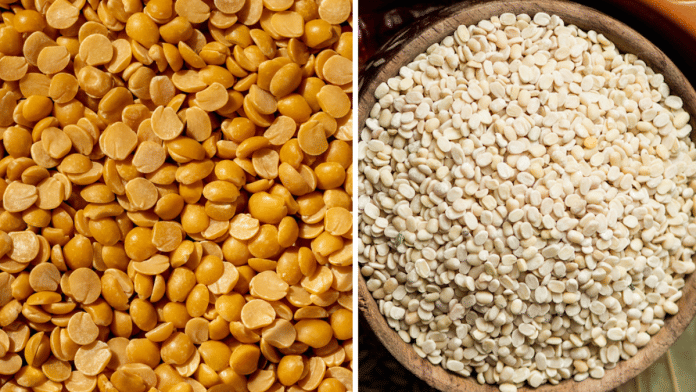New Delhi: The government has announced that retail prices of Tur and Urad have either declined or remained stable in the last three months, thanks to a decline in Mandi prices. This positive trend is attributed to the government’s multi-pronged strategy, including regular monitoring of market prices, direct intervention in the retail market, and proactive measures to ensure smooth imports, a PIB press release stated.
The Department of Consumer Affairs is actively engaged in price monitoring, holding regular meetings with the Retailers’ Association of India (RAI) and organized retail chains. This collaboration aims to ensure fair retail margins and price stability.
To directly impact the retail market, the government has released a portion of its buffer stock of pulses, repackaged as dals, for sale at affordable prices under the Bharat Dal brand. This initiative, along with the ongoing distribution of atta and rice at subsidized prices under the Bharat brand, has helped make essential food items accessible to consumers. Additionally, onions are being strategically released from the buffer stock to moderate prices, particularly in major consumption centers. Onion is distributed among retail consumers at Rs.35 per kg through stationary retail outlets and mobile vans in major consumption centres.
Furthermore, the government has taken steps to facilitate the smooth import of pulses. Tur and Urad imports are currently under the ‘Free Category’ until March 31, 2025, while Masur imports are duty-free until the same date. This import policy, coupled with duty-free import of Desi chana until March 31, 2025, has ensured a consistent supply of pulses in the domestic market, contributing to price stability.
In addition to these measures, the Department of Consumer Affairs has provided support to NCCF and NAFED for farmer outreach programs, seed distribution, and other initiatives. Under the Price Support Scheme (PSS) and Price Stabilization Fund (PSF) components of the PM-AASHA scheme, a total of 10.66 lakh farmers have registered with NCCF and NAFED as of November 22, 2024, for assured procurement of Tur and Urad.
The condition of Kharif crops is good and harvesting is completed for short-duration crops such as Moong, and Urad, while harvesting of Tur crop has just commenced. With the Kharif harvest season underway and favorable weather conditions, the government anticipates a good supply of pulses, which is expected to further stabilize prices in the coming months.






